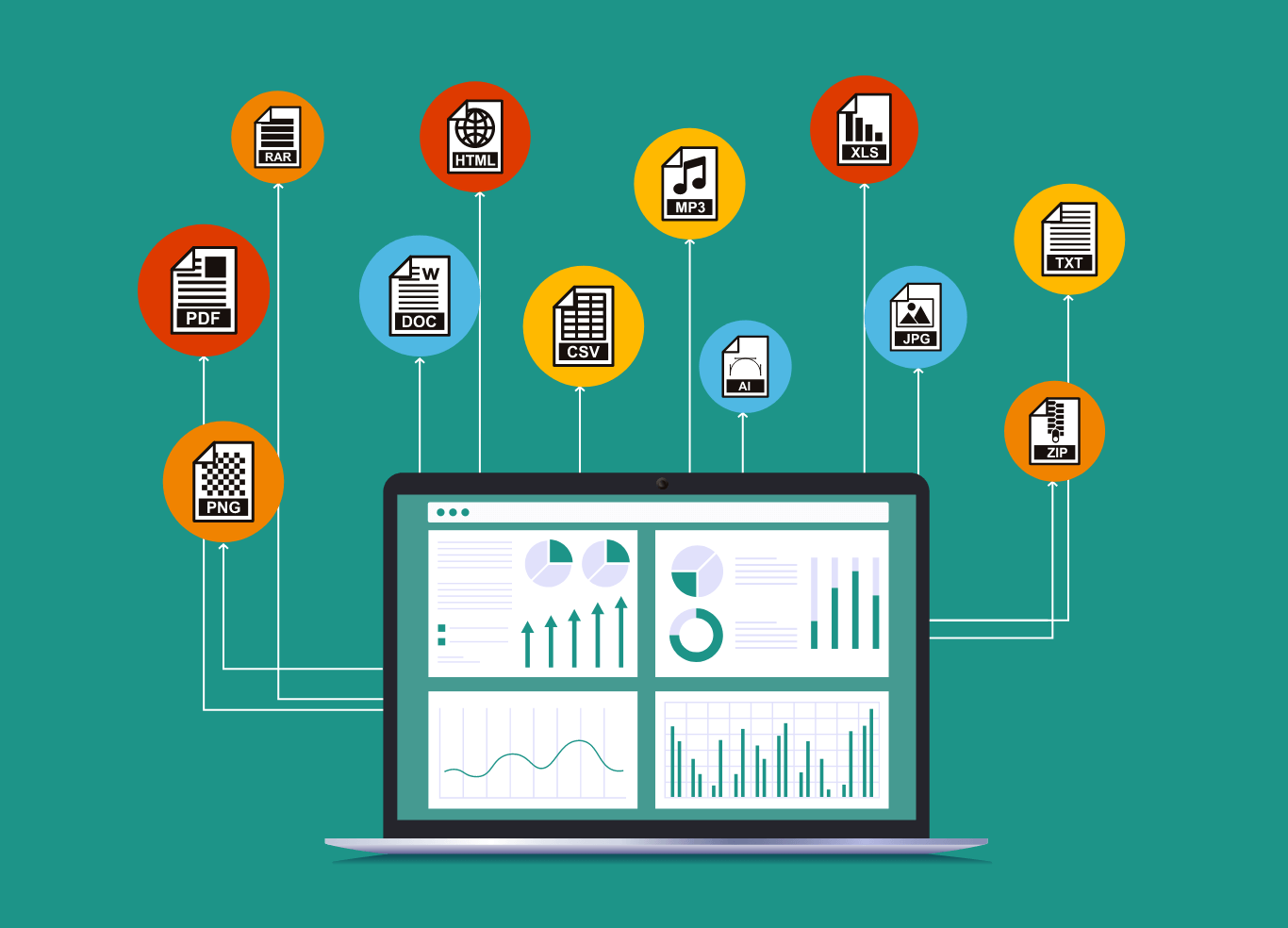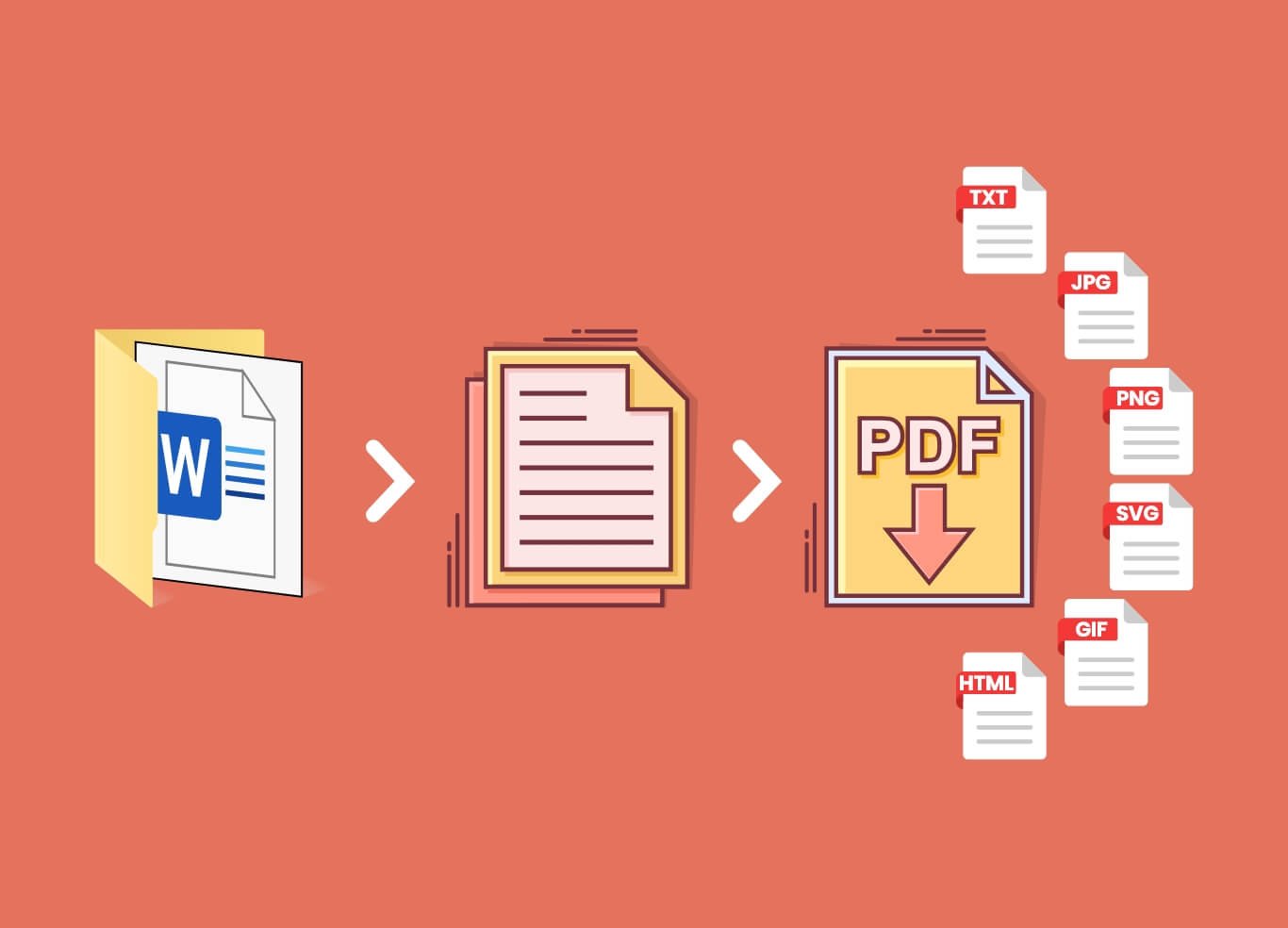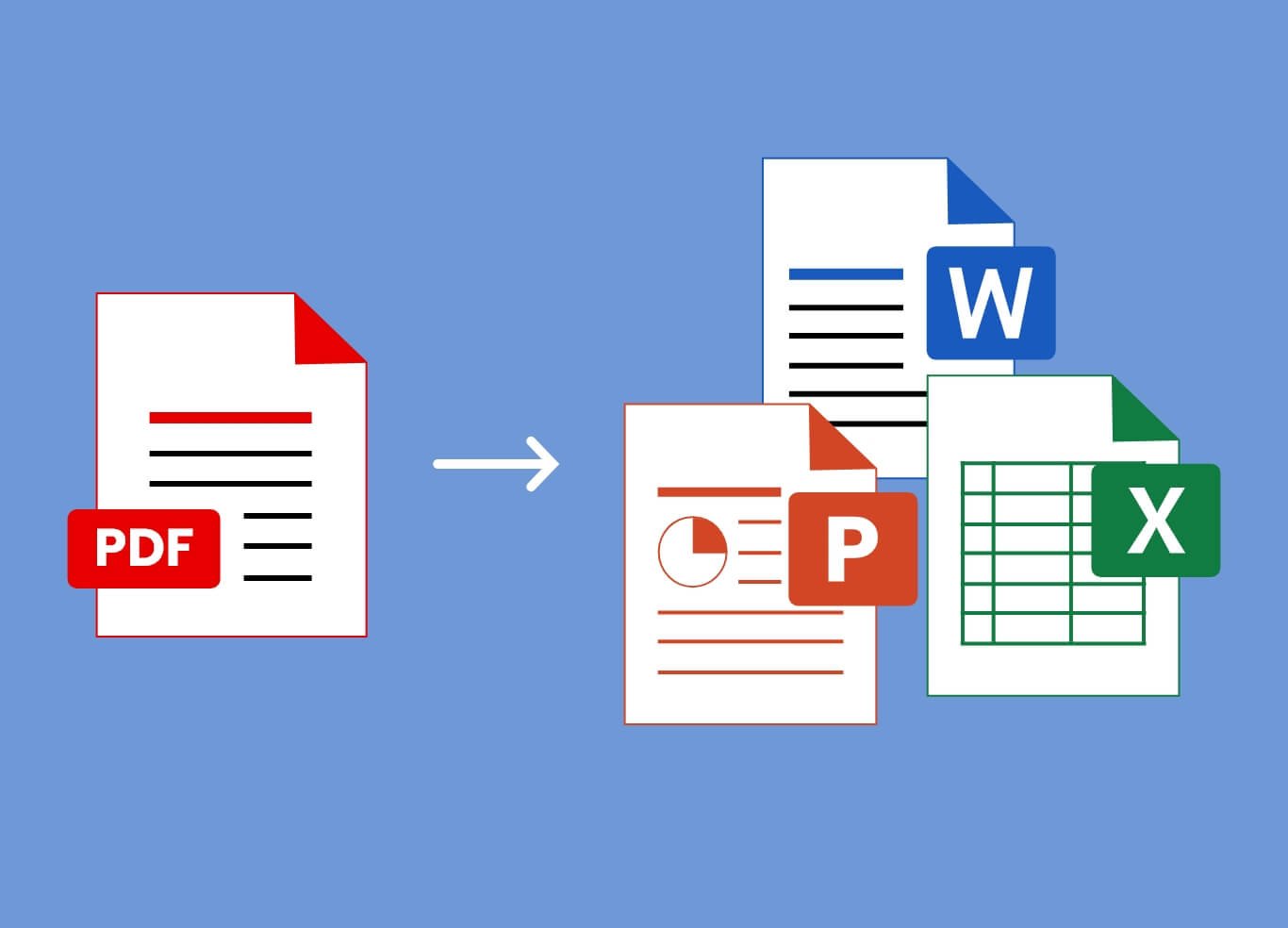Organizing, managing, and maintaining business documents has become an important task, considering the digital age of the economy. Today, every small or large business has adopted the digitalization approach for several reasons that bring beneficial results in many ways. Moreover, staying at the forefront of the market competition is also evident for the business community. To keep up with the trends, patterns and innovation businesses utilize data in various ways that help generate deep insights for analysis and decision-making. Files and documents contain essential information that is evident to store inaccurate, easily shareable, and secured file formats. Organizations collect data in both digital and physical format that may not be in appropriate state.
Firstly, considering the digitalized work approach, any physical file or document demands conversion into digital format. Secondly, files in digital format may not be saved in the correct format, which can result in loss of data, corruption of files, and more. The conversion of files into accurate format enables companies to share and transfer the data more straightforwardly while allowing quick retrieval. However, in such scenarios, firms mostly updated the concept of data conversion service. This makes it easy for professionals to manage massive data and easier way to store, retrieve, access, and share files. Nonetheless, the accurate process also allows data experts or analysts to streamline operations and improve accessibility.
Transform File Format into Compatible Format
In the modern times of the business landscape, having digital files is pivotal; on the other hand, it is also necessary to ensure that each file is incompatible and has an accessible format. The importance of compatibility and accessibility of each file has increased as everything we do has transformed in an electronic or online way. The rapid growth of digitalization has pushed organizations from various sectors towards electronic file conversion to keep essential documents and files secured and accessible in the database. To get more clarity, let’s dive into an in-depth understanding of the importance of file conversion in a digital work approach.
Understanding Briefly About File Conversion in the Digital Era
In the time of digitalization, where everything has become available online, it is equally necessary to understand how to keep online data safe, secure, accessible, compatible, and easily shareable. Files in today’s time are stored in various formats, which may or may not be acceptable in the targeted system or shareable format. Besides, the security of files is another primary concern for companies dealing with sensitive information and details. Therefore, the acceleration of digitalization has provided a significant way to manage all documents and files. Adopting file conversion services, professionals can quickly secure important documents in accessible databases in the right formats.
File conversion is the process of transforming files from one format to another. This intricate process involves altering the file structure and content to ensure it remains accessible and usable across different platforms, software, systems, or devices. This conversion allows professionals to access information quickly without wasting time and effort. It also changes how data is presented in software or the targeted systems. For instance, a Word file with lengthy content may appear differently after being converted to PDF.
With the rapid acceleration of electronics, conventional methods have become obsolete. Electronic conversion files have enabled businesses to keep documents in a digital format that can be easily shared while providing easy access to information. This process streamlines operations, enhances crucial data management, and improves client or customer experience. As businesses seek novel ways to succeed in the competitive market, data conversion services become necessary to maintain data accuracy and productivity. Let’s look into the advantages of converting files for an enhanced business approach.
Benefits of File Conversion Services
Businesses’ work approaches have, time and time again, altered with continuous economic and technological changes. Many changes have been witnessed, from traditional workflow and management of paper files to electronic file conversion. Today, with the growing digital ways and adoption of working electronically, businesses understand the importance of file conversion. Continuing with traditional work methodologies, businesses cannot succeed in the competitive era. Therefore, implementing file conversion services has become important in maintaining file formats while providing quick access to the target system, software, platform, or device. Other than that, converting file formats from one to another brings a plethora of advantages that businesses can enjoy following.
Advantages of File Conversion Services
Compatibility
Accessibility
Optimize Hybrid Working culture
Quality
Security
Consistency in the Filing System
- Compatibility: Companies in various verticals have a variety of files. Different devices, systems, or software may require a specific file format. File conversion enables businesses to use a particular type of document in other systems and applications without facing any issues or hassle. It brings compatibility in several systems.
- Quality: Maintaining the quality of data in the file becomes equally important. However, the accurate process of electronic file conversion, depending on the file type, can help maintain the data quality. The conversion process affects the quality of files for several reasons. Converting image files may reduce their size or cause a loss of quality or resolution. However, with proper conversion and selecting the right format, image files can be saved in low-quality or high-resolution formats.
- Accessibility: Accessibility is one of the prime benefits of the file conversion process. For example, during an agreement, businesses may convert the file into PDF format that is accessible to the concerned party regardless of system, device, platform, or software. Businesses can search for specific information without wasting crucial time from the common database with authority control.
- Security: Another advantage of file conversion is the security it provides to your data. Proper and accurate process of converting files protects your documents from unauthorized access, editing, and modification. This is particularly true for password-protected files such as ZIP or RAR.
- Optimize hybrid working culture: The file conversion process helps reduce physical working culture. The digital file process frees space while promoting a hybrid or work-from-home culture, as files can be digitally accessed anywhere. Moreover, it also encourages employee productivity.
- Consistency in the filing system: The process of converting a file into an accurate format maintains the consistency of documents. Businesses have recurring files or might get updated information with time; however, updated information can be saved in the same converted file with correct formatting. Moreover, it also helps optimize digital approaches with proper filing names and folders. The digital approach helps to build a robust framework and operations in the business and new efficiencies across all departments.
The advantages mentioned above of implementing file conversion processes in business are as follows: With the growth of digital approaches and change in working culture, especially after COVID-19, converting one format to another plays a crucial role. However, businesses have more data than ever in documents, and each is convinced according to the requirement and type of format. This brings types of conversion services for businesses to choose from per their needs. Let’s explore some of the essential conversion types.
Various Types of File Conversion Services
Businesses from various economic areas create and collect massive amounts of data as they expand. The daily collection of data demands accurate management, security, and storage to ensure the information isn’t leaked or breached for misuse.
Above all, conversion services in various sectors help businesses to integrate data into other systems and processes. As the economy is vast, healthcare data conversion has been increasingly in demand due to healthcare sector requirements. Similarly, other sectors also harness the power file conversion in several types.
- XML conversion: converts files into the XML format used in various software and operating systems.
- PDF conversion: One of the standard conversion formats that is easily accessible to various supporting systems and devices. Commonly preferred to convert Word and MS Excel files.
- HTML conversion: HTML conversion services are usually provided to help search engineers read files easily. Word, PDF, and PowerPoint files are typically converted into HTML format.
- Image-to-text conversion: Images are a common data type in any business and are required to maintain quality and resolution. Image-to-text conversion is commonly a process of transferring image files into text format.
- Book conversion: For easy sharing and accessibility, books and their information are converted into ebooks that are transferred from system to system and support every platform and device.
- Catalog conversion: Businesses use catalog conversion services to efficiently manage the data collected from files, websites, and hard copies for optimum utilization.
The above-mentioned significant types of file conversion services help businesses make better and more efficient use of data. However, every practice has its fair share of challenges and complexities. Similarly, data conversion services may come with a few challenges. Following are;
Challenges in File Conversion for Business
Data is an essential resource in every organization. However, it also comes with complexities and challenges that can become a hurdle in converting the file format and disrupt the quality of the information. Below are common challenges that may occur.
- Compatibility issue: Converting different data file formats can be tedious due to incompatibility with other systems. This can create problems in the conversion process and difficulty in accessing and transfering the data.
- Complex file structure: One significant challenge is the complex structure of files, as every file differs. The objective of the file conversion process becomes challenging that can lead to errors, inefficiencies, and formatting issues.
- Data loss: Several reasons, including technical errors, formatting issues, data testing, and more, can cause data loss during the file conversion process.
- Text encoding issues: Text encoding issues can be a challenge with translation of quality, text representation, and more, which can decrease the quality of data as well.
These challenges may occur during the file conversion services. However, other challenges may also arise depending on the file type, content, and conversion process. Hiring a file conversion expert who is well-versed in the process and technologies and can overcome the challenges. Outsourcing data conversion services by a reliable team can be budget friendly per the requirement. Uniquesdata is a top outsourcing file conversion company with a team of data conversion professionals using cutting-edge technologies.
Concluding Remarks
With rapid increase in digitalization use of data and the massive creation, file conversion has become a pivotal for business function. Conversion helps ensure data accessibility and compatibility while improving quality and minimizing errors.



